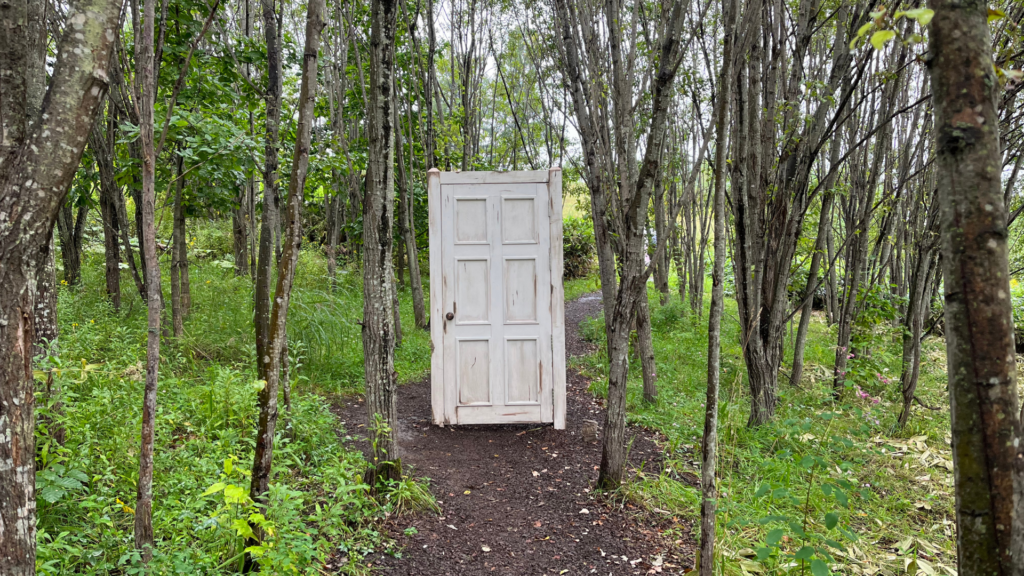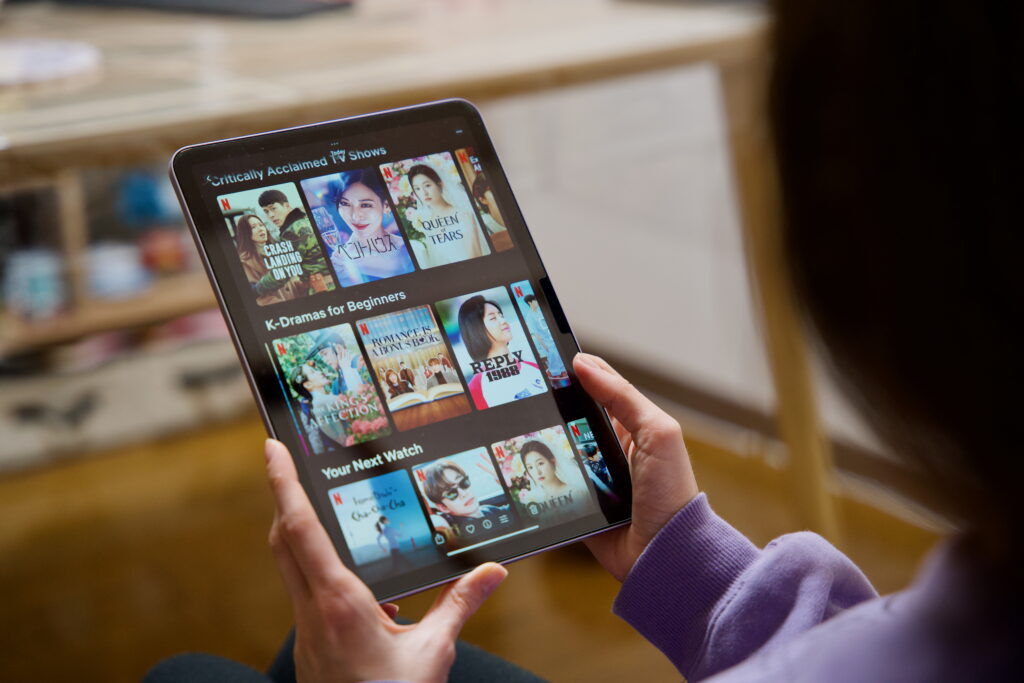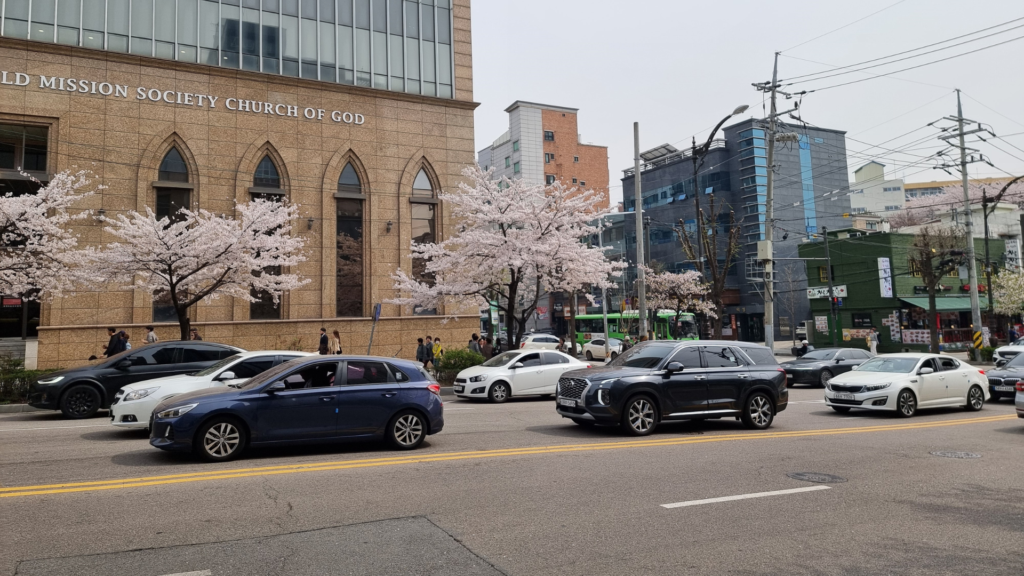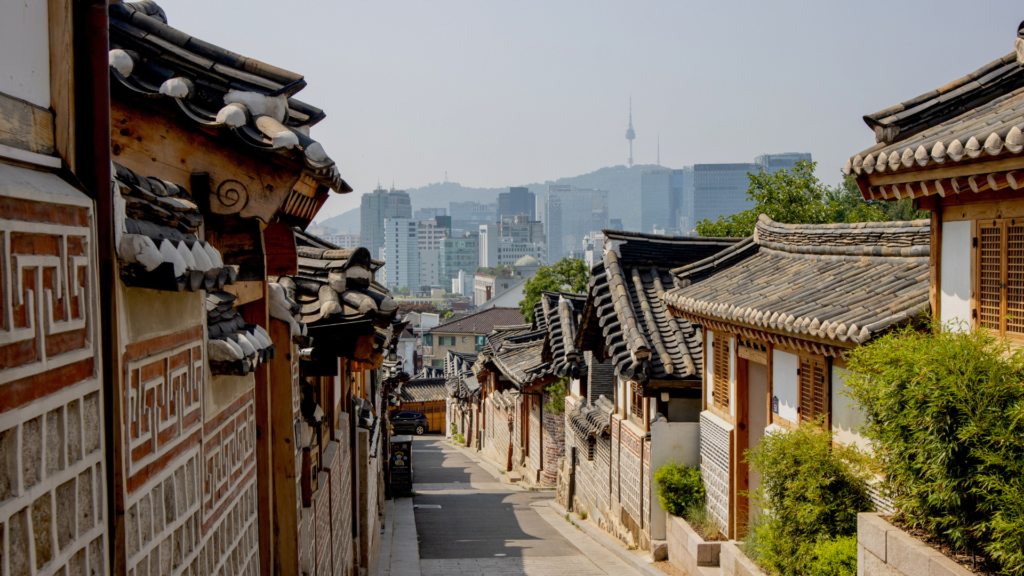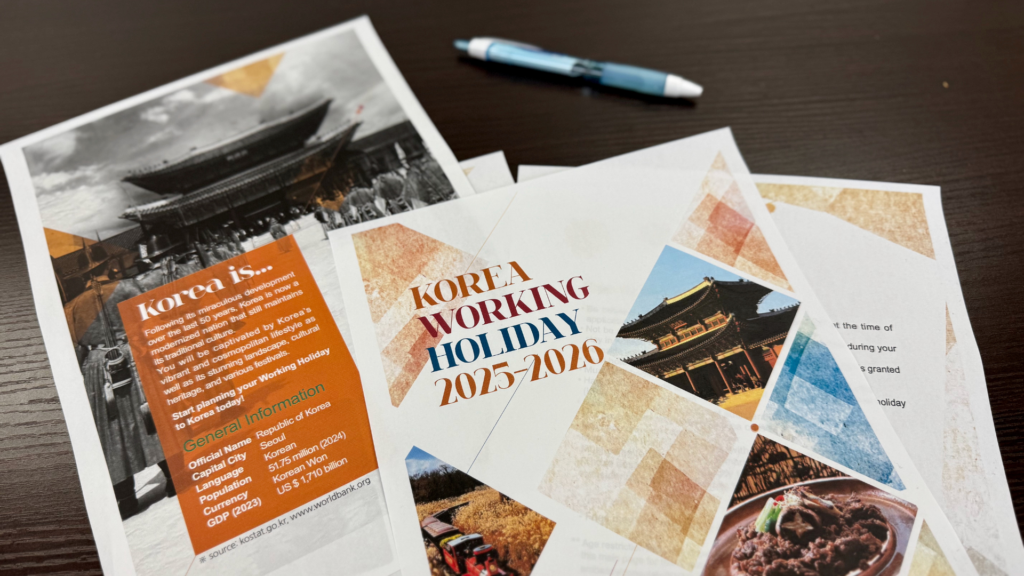Last update on February 2024
Are you thinking about living and studying in South Korea, but have a lot of questions that you can’t find the answers to? This is totally normal and there are many things to consider before going on a study abroad experience.
That’s why we have put together a list of the 15 most frequently asked questions about living and studying in South Korea.
1. Do you need a visa to study in Korea?
It depends on the course. For courses of a few weeks up to 3 months, living and studying in South Korea is possible as a tourist. For long-term courses exceeding 3 months it will be necessary to apply for a D-4 student visa for language courses. Read our article on visas to study in Korea to find out what you need.

2. What language are the Korean lessons taught in?
Korean lessons are taught in Korean from day one. There are no schools or universities that offer courses in English, since the main goal is to offer a direct approach from the first day of class. Furthermore, students come from all over the world and the common language will become Korean.
3. How do you find a home in South Korea? What is student accommodation like?
The most affordable accommodation for living and studying in South Korea is school dormitories. Each university offers its own dormitory on campus, with double or single rooms – based on availability – and a canteen that all students, both Korean and foreigners, can access.
Alternatives to the dormitory are share houses, apartments shared with Koreans and foreigners, and goshiwons – mini apartments that include a private room and a private bathroom.
For more information visit our page on accommodation in South Korea.
4. Can I enroll for three months and extend my studies in Korea?
It depends on the type of course you are enrolling in and the type of visa with which you arrive in Korea. For those who have a D-4 student visa, it is possible to extend the registration for further quarters, while for those who enter Korea as a tourist the procedure is more complex. For information contact our staff.

5. How much would living and studying in South Korea cost?
Costs vary depending on the duration of the language course or accommodation. In general, the average cost of a three-month language course in Korea, including accommodation, is 2400 Euros.
For six months it can be considered double, or around 4800 Euros, which includes your Korean language course and dormitory accommodation.
6. Can I attend a language course in Korea with the Working Holiday visa?
Yes! The Working Holiday visa allows you to study at a language school in South Korea, while working part-time and/or traveling.
The purpose of the visa is specifically to live in Korea for a period of time, whether for a work experience or for a study or travel experience. With the Working Holiday visa you are not forced to register at a language school for the entire period of your stay. But you can also register for a short course and take advantage of the rest of the time by working or visiting the country.
On the other hand, if your primary purpose is to study the language, we recommend that you contact us to apply for a D-4 student visa.
7. Can I study Korean in South Korea even if I am a beginner?
Yes, Korean courses are open to everyone. Teachers use drawings, pictures or very direct and repetitive methods at the beginning, so that everyone is able to memorize slowly. There is a lot of written and oral practice in class and everyone starts at the same level.

8. I have already studied Korean in my home country. Do I have to start from scratch in South Korea?
Absolutely not! New students will take a placement test – a level test on the first day of school to check their level of Korean. Based on the test result, the teacher will evaluate which class to assign the student to. Check out our video to learn more about how Korean classes are structured.
9. I want to prepare for the TOPIK. Are there any specific courses in South Korea?
The language courses of the universities in Korea follow the topics and notions required by the TOPIK test, as well as the exercises in the classroom. However, there are schools that, in addition to the regular courses, offer extra lessons, dedicated exclusively to the preparation for the TOPIK.
Contact us to find out which schools offer this option.
10. What are the requirements for enrolling in a language course in South Korea?
You must fill out an application form from the chosen school and provide a series of documents including the following: passport photo, high school or graduate diploma, report cards or list of university exams, bank statement, health insurance. Documents must be translated into English.
Requirements vary by school and course length, so we recommend that you contact us for detailed information on the school you are interested in.

11. Can I work part-time while living and studying in South Korea as a language student?
In Korea, part-time work is only possible after six months of a student visa. The first months are dedicated to studying and learning Korean. Those who go to study in Korea for periods of less than six months with a tourist visa cannot work. Only those who enter South Korea with a Working Holiday visa can work part-time from the day they arrive. Read our article about part-time jobs in Korea.
12. How do I find part-time work while living and studying in South Korea?
There are several Facebook groups or online job search ads. Sometimes you just need to ask in some restaurants or convenience stores if they are looking for staff. Remember that being able to speak Korean at a TOPIK 2 level is the minimum required to work part-time in Korea.
13. I am a vegetarian, can I survive in South Korea?
Of course, vegetarians can also eat well while living and studying in South Korea. Bibimbap (비빔밥) is usually only made from vegetables, unless it is bulgogi bibimbap. Then there are the kimbap (김밥), also known as Korean maki, or rice rolls stuffed with vegetables and wrapped in seaweed.
There are also some types of noodles, such as memil guksu, or spicy tofu soup (순두부 찌개 sundubu jjigae) which does not include meat or fish. Don’t forget about the bakeries and the sweet shops which are widespread in South Korea and offer a delicious selection of sweets. Read our article about being vegetarian in Korea.
14. I have a very limited budget, but dream of living and studying in South Korea. What can I do?
There are courses of varying lengths and prices. You can opt for a course of a few weeks if you don’t have enough financial resources to study for the long term. Otherwise you can consider the Working Holiday visa, which requires a lower amount than the student visa, but which also allows you to work part-time in Korea immediately. On the other hand, if you are looking for a short course that combines language study with cultural activities, check out our Study Trip courses.
15. Is Go! Go! Hanguk a free service?
Go! Go! Hanguk is absolutely free for students. All that you will pay by using our services is the same administrative fees that you would pay if you were registering on your own. However, Go! Go! Hanguk also provides you with support for accommodation and other information relating to life in South Korea free of charge.
Read our article to find out what Go! Go! Hanguk is and how to learn Korean in Korea.
For more articles on living and studying in South Korea keep following the Go! Go! Hanguk blog or contact us for information.

